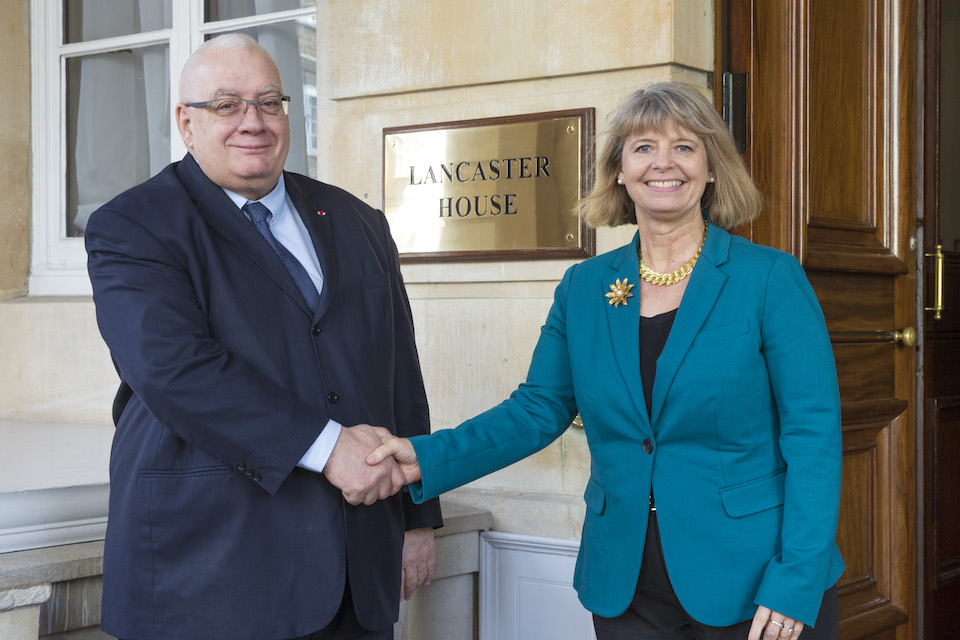News story: Air Quality Grant programme
Projects across the country will benefit from almost £3.7 million as part of an annual funding scheme to help combat air quality locally, it was announced today.
The Air Quality Grant programme has awarded more than £52 million to a variety of projects since it started in 1997 and helps local authorities tackle air quality in their areas to reduce the impact on people’s health and create cleaner and healthier environments.
This year’s Air Quality Grant programme for 2016/17 will focus on supporting schemes set up to tackle nitrogen dioxide levels, and include:
- £163,100 for electric vehicle charging and infrastructure improvements and an electric vehicle car club in East Herts
- £498,600 for a Clean Air Zone study by Bristol and South Gloucestershire councils
- £400,000 to support Nottingham trial fuel cell technology and encourage ultra-low emission vehicles in the local NHS
Environment Minister Therese Coffey said:
“Tackling poor air quality is a priority for the government and we are working closely with Local Authorities so they can play a crucial role in this.
“I was delighted at the broad range of ideas submitted, from using the latest technology to promoting cleaner taxis and increasing the uptake of electric vehicles, and these projects will help to improve the quality of life for people who live and work in our towns and cities, both now and in the future.”
Transport Minister John Hayes said:
“We are determined to cut emissions and improve air quality for communities across the country; as a father of two, I would want no less for any family than I’d want for my own. These grants will help councils take significant practical steps to clean up the air and to improve communal wellbeing in their area.
“This good work will sit alongside the government’s draft air quality plan which will be published in the spring.”
The government is firmly committed to improving the UK’s air quality and cutting harmful emissions and its air quality plan will go out to consultation later this year.
More than £2billion has already been committed since 2011 to increase the uptake of ultra-low emissions vehicles and support greener transport schemes and set out how it will improve air quality through a new programme of Clean Air Zones. In last year’s Autumn Statement, a further £290m was allocated to support electric vehicles, low emission buses and taxis, and alternative fuels.
| Local Authority | Project | Amount £ |
|---|---|---|
| Birmingham City Council | Parking reform to reduce traffic in city centre combined with awareness raising | 350,000 |
| Bristol City Council, South Gloucestershire Council | Clean Air Zone feasibility study | 498,600 |
| Cornwall County Council | Fitting council vehicles with oxy-hydrogen electrolysers | 236,650 |
| Derby City Council | Retro-fitting of Council’s HGV fleet with emissions reduction technology | 250,000 |
| Derby City Council | Cleaner taxis research and engagement programme | 29,750 |
| Doncaster Council (with Barnsley MBC, Rotherham MBC and Sheffield City Council) | Demonstration of electric vehicles with a local communication and engagement campaign to increase uptake of Ultra Low Emission Vehicles | 100,000 |
| East Herts Council | EV charging and infrastructure improvements and EV car club | 163,100 |
| Gateshead Council | Traffic management measures, fleet upgrade and improved cycling infrastructure | 395,957 |
| Leeds City Council | Research real-world emissions from road transport refrigeration equipment and possible mitigations | 150,000 |
| Leicester City Council | Work-based active travelling local campaign | 67,300 |
| London Borough of Islington | Local school focussed awareness and engagement campaign | 50,000 |
| Nottingham City Council | Trial of innovative fuel cell technology within the Council’s property portfolio | 200,000 |
| Nottingham City Council | Improve the uptake of Ultra Low Emission Vehicles in NHS fleet | 200,000 |
| Sheffield City Council | Air Aware communications campaign (engaging local GPs, community groups and schools) | 50,000 |
| Southampton City Council (with Eastleigh Borough Council) | Supporting the uptake of low emission taxis | 253,880 |
| Southampton City Council | Eco-safe driver training and installation of telematics on council fleet | 99,000 |
| Southampton City Council (with Birmingham City Council, Derby City Council, Leeds City Council, Manchester City Council and Nottingham City Council) | Air quality awareness and engagement campaign | 539,120 |
| Westminster City Council (with London Borough of Camden) | Provide advice and toolkits for SMEs to reduce transport emissions from deliveries associated with their operations | 54,077 |
| TOTAL | 3,687,434 |

